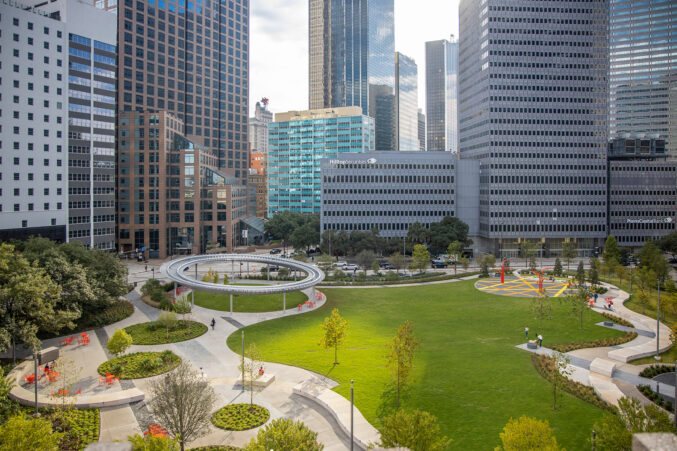
The experts say that 1,000 people are moving to Texas each day. Let’s say they’re half right and it’s closer to 500 people a day. Assuming that North Texas gets its fair share of the 500, that means 200 hungry folks per day, or 70,000 per year, are moving to the area.
We are also pretty good at making babies in Dallas-Fort Worth. Couple that with natural growth and immigration, and we have a lot of new mouths to feed.
It’s a good thing that our grocery offerings are about as diverse as our population. We have Walmart, Target, Albertson’s, ALDI, and new entrant WinCo battling it out on the value side. Existing full service providers such as Kroger, Market Street, Tom Thumb, and Brookshire’s are trying to increase store count and market share. And HEB is looming with several land bank sites scattered across DFW. Trendy, healthy options such as Central Market, Whole Foods, Sprouts, Trader Joe’s, and Fresh Market are opening more stores. The retail construction you see in your neighborhood—that’s probably a grocery store.
The growth is far and wide. The Allen/McKinney trade area, 25 miles north of downtown Dallas, has seen a new Whole Foods and Sprouts open in the past year or two. In the same trade area, WinCo is about to open, HEB has a land bank site on State Highway 380, while Trader Joe’s is finalizing a deal in the trade area. Kroger Market Place, Market Street, Albertson’s, and Tom Thumb operate some of their best stores in this area. This grocery activity is being repeated across North Texas in other trade areas from North Fort Worth to Burleson.
As affluent population growth in the urban core of Dallas continues, the higher-end—and more expensive—grocery stores are able to penetrate the market, as their smaller footprints and the daily needs traffic match up with developers’ plans. HEB’s smaller Central Market store in Preston Hollow is a model for others to follow, and clearly is catching on in nearby neighborhoods. Trader Joe’s is under construction at Inwood Village, while Whole Foods is coming out of the ground in Uptown and Fresh Market has been announced at Turtle Creek.
Unlike your father carrying a Texaco gas card, it seems like we are no longer a one-stop, brand-loyal consumer when it comes to groceries. A trip to Kroger to get the basics is now supplemented by a stop at Central Market for organic, fresh and healthy options, followed by a dash to Target to get discount items or more staples. Our hectic, time-crunched lifestyles demand a variety of options and convenient locations. Local consumers are now in the habit of visiting two or three grocery providers a week … and so the grocery industry growth will continue to thrive in North Texas.
Mark Reeder is executive vice president and Dallas market leader at SRS Real Estate Partners. Contact him at [email protected].





